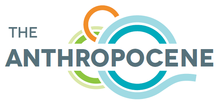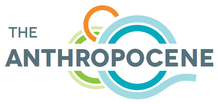The Anthropocene Symposium
Zu Ehren des Atmosphärenchemikers Paul Crutzen, der 1995 zusammen mit Mario J. Molina und F. Sherwood Rowland für ihre richtungsweisenden Arbeiten zur Aufklärung des Ozonlochs den Nobelpreis für Chemie bekam und der am 3. Dezember seinen 80. Geburtstag feiert, diskutierten am 2. Dezember in Mainz namhafte Köpfe aus aller Welt über aktuelle umwelt- und klimapolitische Herausforderungen. Im Mittelpunkt stand dabei der Begriff des Anthropozäns (englisch „Anthropocene“), den Paul Crutzen vor zehn Jahren als neue Bezeichnung für das durch den Menschen geprägte Erdzeitalter vorschlug.

Scientific Symposium, Dec. 2nd 2013, 9 a.m.
Eighty years measured in geologic time may only be an instant—yet the importance of this period is measured by other standards. Paul Crutzen has devoted his life to science. His creative mind and contemplation have always been directed towards the future, learning from the past. And so he suggested a new term which, in a single word, describes the enduring influence, despite having been exerted in a geologic instant, of mankind on the planet Earth. The “Anthropocene” conceives humans to be a geologic factor, influencing the evolution of our globe and the living beings populating it. On the occasion of Paul’s eightieth birthday we would like to extend a invitation to attend a one-day symposium on the Anthropocene, at which some of the leading minds of our time will present their thoughts on this area of research. In honor of Paul and at his request, the scientific discussion of the Anthropocene aims to support the sustainable development of our world.
Jos Lelieveld,
Managing Director of the Max Planck Institute for Chemistry
December 2nd, 2013
9 a.m. to 6.00 p.m.
Kurfürstliche Schloss (castle)
Mainz, Germany
9.00 a.m. OPENING REMARKS, Jos Lelieveld, Managing Director
Tributes
- Wolfgang Schön, Vice President Max Planck Society
- Georg Schütte, State Secretary, Federal Ministry of Education and Research
- Michael Müller, Former Parliamentary State Secretary
- Bernd Schmidbauer, Former Minister of State
- Doris Ahnen, Rhineland-Palatinate Minister for Education, Research, Further Education and Culture
- Paul Crutzen, Max Planck Institute for Chemistry
Scientific Speakers + Program
11.30 a.m.
Hartmut Graßl, Max Planck Institute for Meteorology, Germany
Shaping Germany's Role in Ozone and Climate Policy - The Push by Paul Crutzen
Ralph Cicerone, National Academy of Science, USA
Stratospheric Ozone and Climate Change: Different Human Causes and Responses
Mario Molina, University of California in San Diego, USA
Climate Change: Science and Policy
12.45 a.m. LUNCH
2.45 p.m.
Susan Solomon, Massachusetts Institute of Technology, USA
Ozone Depletion: An Enduring Challenge, Abstract
Veerabhadran Ramanathan, Scripps Institution of Oceanography, USA
The Two Worlds in the Anthropocene: A New Approach for Climate Change Mitigation, Abstract
Henning Rodhe, University of Stockholm, Sweden
The Anthropocene Sulfur Cycle, Abstract
Jack Fishman, Saint Louis University, USA
Tropospheric Ozone in the Anthropocene: Are We Creating a Toxic Atmosphere? Abstract
3.55 p.m. COFFEE BREAK
4.30 p.m.
John Burrows, University of Bremen, Germany
Living in and Observing the Anthropocene from Space, Abstract
Klaus Töpfer, Institute for Advanced Sustainability Studies, Germany
The Anthropocene – Sustainability in a World of 9 Billion People
Meinrat O. Andreae, Max Planck Institute for Chemistry, Germany
400,000,036 Years of Biomass Burning
5.45 p.m. CLOSING REMARKS and DRINKS RECEPTION
Please address further questions to Susanne Benner by e-mail or telephone: susanne.benner@mpic.de / +49-6131-305-3000.
